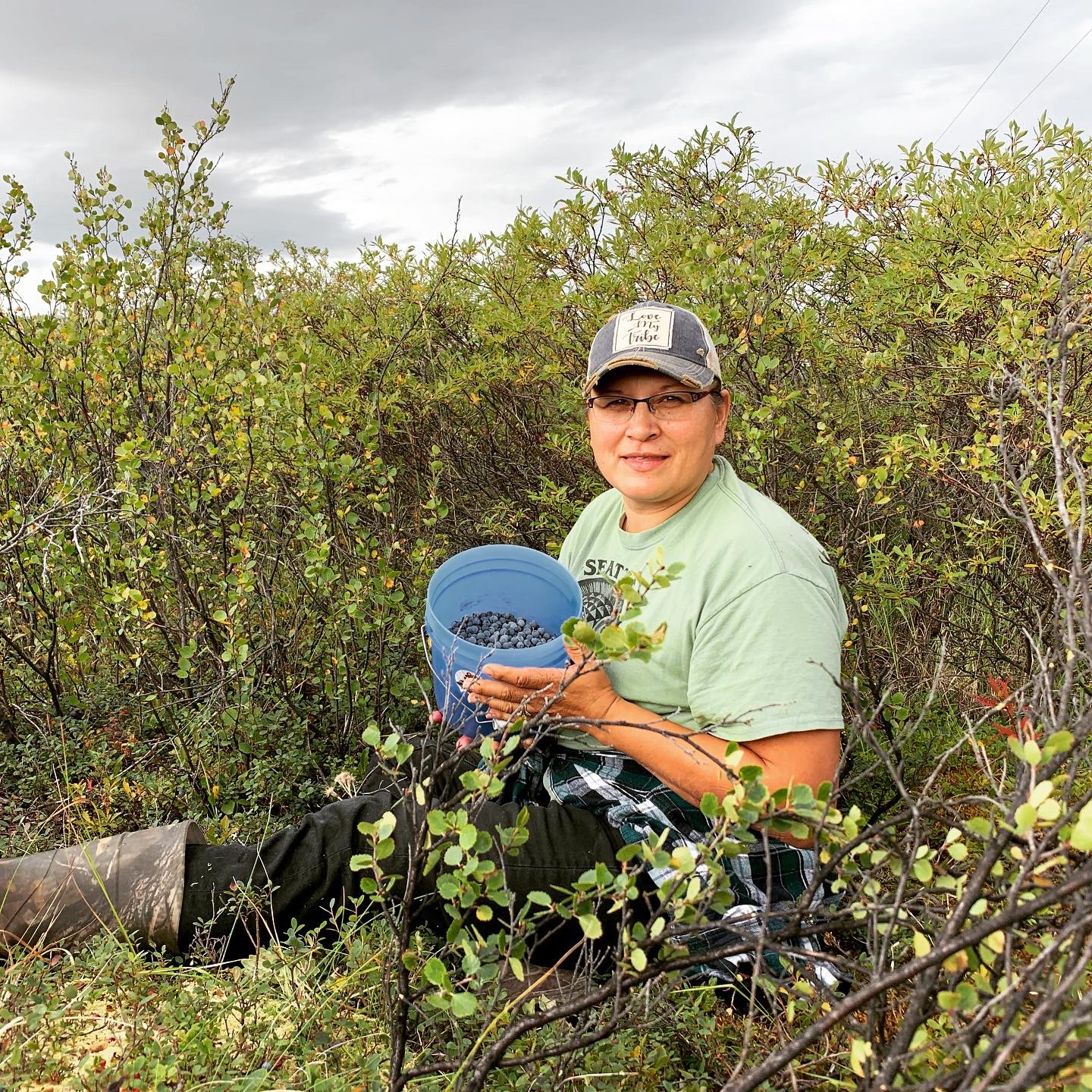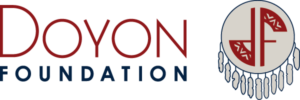 “Our language is the missing link to our identity”
“Our language is the missing link to our identity”
Bertina Titus is the daughter of Carol Reid of Minto and the late Carl H. Ramay Jr. of Missouri. Bertina’s maternal grandparents are Neal and Geraldine Charlie of Minto; her paternal grandparents are Florence and Melvin Ockert of Missouri. Bertina wishes to recognize her husband, Gabriel Titus; children Leanna Knight and Tehya, Desirae, Eliah, Asher, Traeton and Jerren Titus; brother Byron Charlie; and sister Annie Silas.
Bertina lives in Wasilla and is a language specialist whose employers include the Yukon-Kuskokiwm School District and Doyon Foundation. She received a Doyon Foundation scholarship while enrolled in the University of Alaska Fairbanks where she studied accounting and rural development. Bertina’s language is Benhti Kenaga’, spoken by Alaska Native people of the lower Tanana region.
Doyon Foundation: You see a connection between the example of Elders and language learning efforts today. Can you say more about that?
Bertina Titus: Our Elders were very strong in all they did because they operated out of every part of their Native values. This is why they lived and endured so much not only for their survival but our survival as well.
My grandparents Neal and Geraldine Charlie are among people who were instrumental in teaching me to speak my language. The list includes my husband, Gabriel; his grandmother Elsie Titus; and Sarah Silas. I’ve learned from some of the nicest people I know.
I truly feel that our language is the missing link to our identity. Without this language that God gave us, we may never reach the full potential that God created us to be.
DF: You consider yourself a language learner even while you’re helping to teach others.
BT: Yes, I’m still trying to learn. I’ve worked with Doyon Foundation on video lessons and with Susan Paskavan with Yukon-Kuskokiwm School District. One of the best language-learning techniques is repetition. Hands-on strategies, such as activities at home, would be good too even though it can seem hard at times to put this approach into practice.
DF: What advice do you have if people are unable to practice regularly?
BT: A big challenge is if you have nobody to speak the language with, someone who really understands it, or if you’re just not using it every day. To overcome challenges I just still try. I have the language in my heart and keep trying.
DF: Your hopes for language learning including someday moving to Minto where you were raised. There’s a link between fond memories of your growing-up years and your passion for language learning today.
BT: I loved living in Minto. I remember playing outdoors a lot; we felt pretty free! And when I was around my grandparents I’d hear the language being spoken. In school we were taught some basic Benhti Kenaga’ but not very much.
I would love to move back to Minto and teach the language in a class during school or after school. This would be a way to revive our language because it would involve others, not just school kids.
DF: Something you’d like others to know?
BT: I truly want to be a fluent speaker so that I may teach and learn all I can to help others. I want to be able to tell my grandpa someday when I see him in Heaven that I succeeded in his dream — and my dream — of helping others to learn our Native language. Everyone should have an interest in our God-given gift!
About Doyon Languages Online
Through the Doyon Language Online project, Doyon Foundation is developing introductory online lessons for Holikachuk, Denaakk’e (Koyukon), Benhti Kenaga’ (Lower Tanana), Hän, Dinjii Zhuh K’yaa (Gwich’in), Deg Xinag, Dinak’i (Upper Kuskokwim), Nee’anděg’ (Tanacross) and Née’aaneegn’ (Upper Tanana). The project officially launched in summer 2019 with the first four courses, now available for free to all interested learners.
Doyon Languages Online is funded by a three-year grant from the Administration for Native Americans (ANA), awarded in 2016, and an additional three-year grant from the Alaska Native Education Program (ANEP), awarded in 2017.
As Doyon Foundation continues to grow our language revitalization efforts in the Doyon region, we believe it is important to recognize people who are committed to learning and perpetuating their ancestral language. We are pleased to share some of these “language champion” profiles with you.
If you know a language champion, please nominate him or her by contacting our language program director at [email protected]. Language champions may also complete our profile questionnaire here. You may learn more about our language revitalization program on our website, or sign up to access the free Doyon Languages Online courses here.
